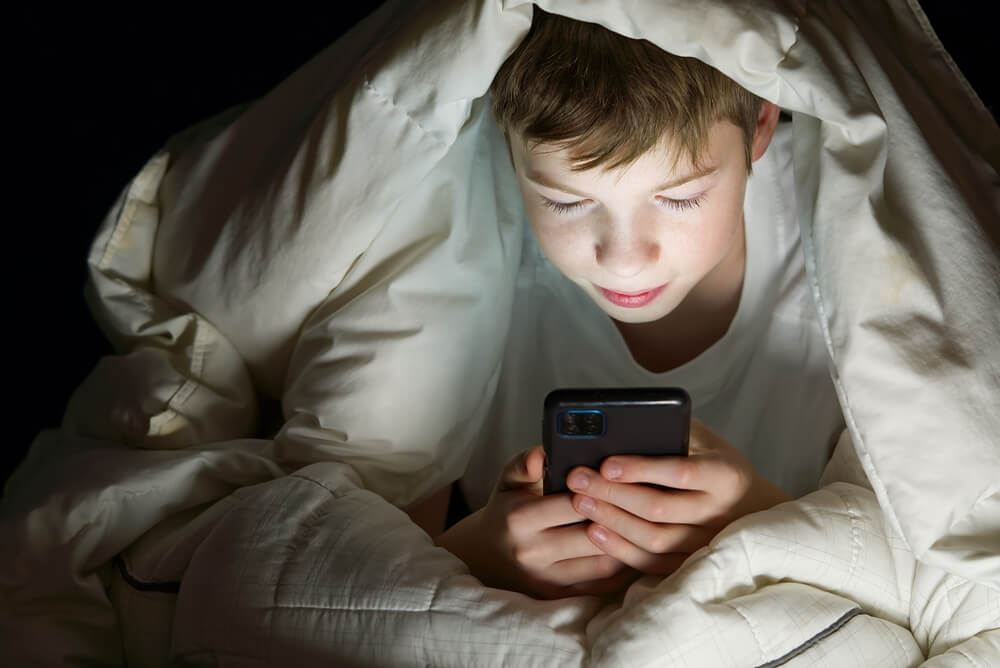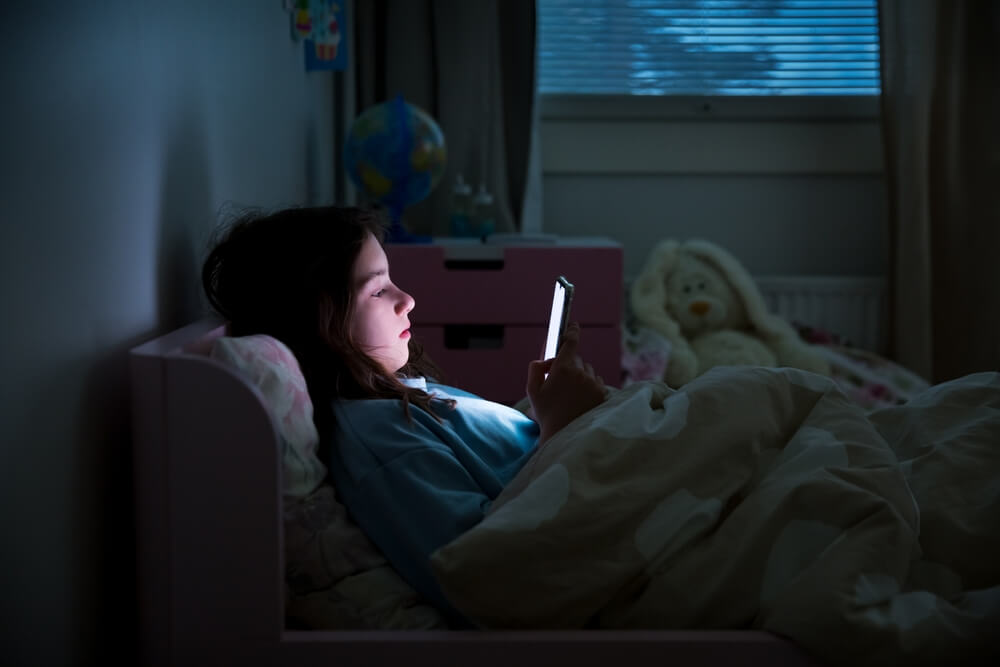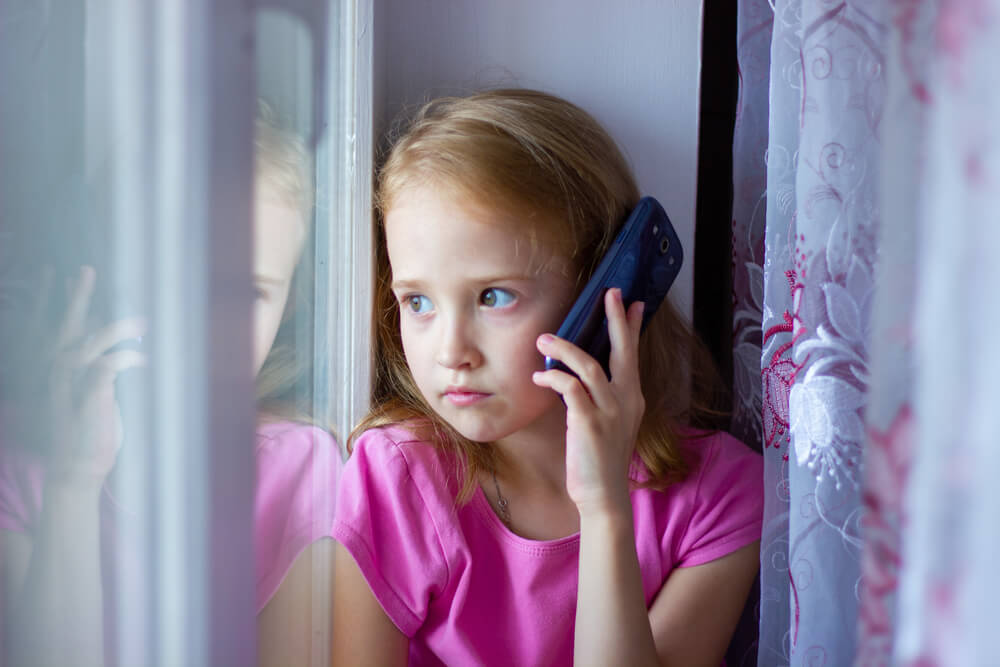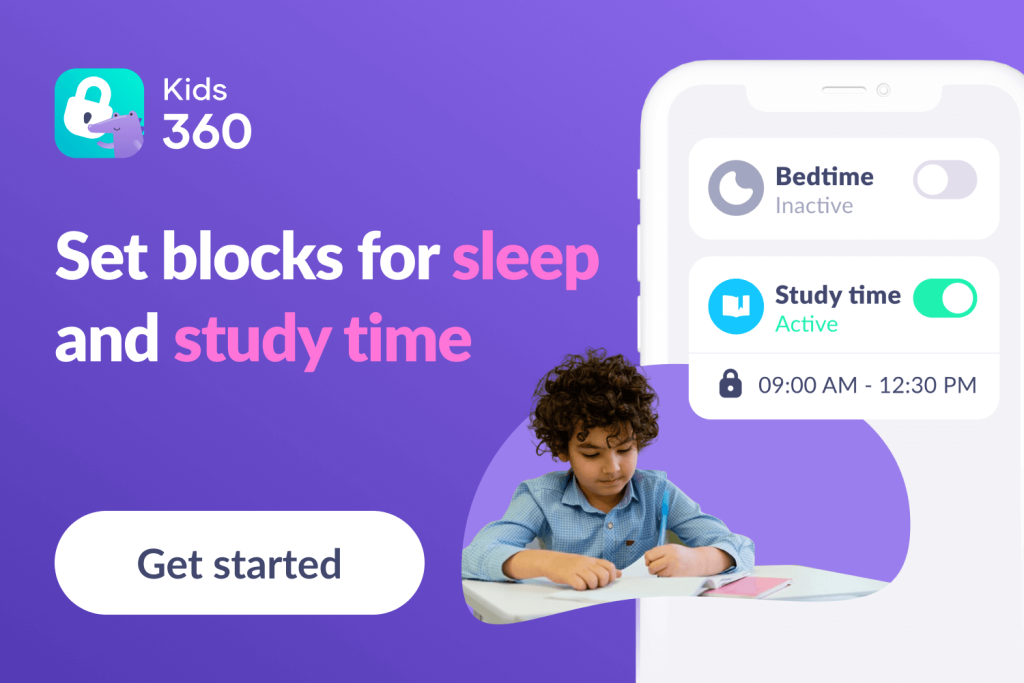Should Parents Let Their Kids Keep Phones in Bedroom at Night?

There’s a lot of talk these days about why parents shouldn’t take away phones at night. It’s confusing—how could they not? Kids already use their phones too much (our research confirms this, by the way).
You’re trying to find a balance, and rightly so—too much phone time can lead to insomnia, anxiety, and all sorts of other problems.
But there are two sides to this.
Taking away the phone at night can actually do more harm than good. For one, it can create conflict and tension between you and your child. It can also create a sense of mistrust in your relationship.
But beyond these issues, there are real concerns about the impact of not taking away phones at night. If you have a real phone problem with your child, you might feel like you’re at a loss for what to do, but we want to help.
Before taking away your child’s phone, it’s worth considering why parents shouldn’t take away phones at night, as well as some reasons why you might want to make the switch. In this article, we’ll take a look at both sides so you can get a well-reasoned, balanced overview to help you make the decision.
Let’s dive in!
Contents:
- What Are the Health Risks of Having Phones in the Bedroom?
- Cons and Pros of Taking Phones Away at Night
- Helping Kids Develop Healthy Technology Habits
- What if My Child Refuses to Have Their Phone Taken Away at Night?
- What Age Should a Child Have a Phone?
- Ways to Keep Your Child Safe Online
- FAQs
What Are the Health Risks of Having Phones in the Bedroom?

InFocus.ee/Shutterstock.com
Phones have become an integral part of our day-to-day lives. We use them to make phone calls, send text messages, browse the internet, take pictures, and sometimes, even as an alarm clock. However, many of us often fail to recognize the potential health risks associated with bringing our phones into the bedroom.
One of the most obvious risks is that smartphones emit blue light, which can disrupt our sleep and circadian rhythm. Our bodies are programmed to follow a natural sleep-wake cycle, also known as the circadian rhythm. The blue light emitted by our phones mimics daylight,t making it harder for our brain to understand when it is time to sleep, resulting in sleep disturbances and insomnia. One study shows that by reducing blue light exposure, either by abstaining from using a screen before bed or using blue light-blocking glasses, people tended to fall asleep faster and stayed asleep longer. Another study shows that teens who use their phones before bed or keep them in the room delay sleep by at least 30 minutes.
Аnother health risk of having phones in the bedroom on a nightly basis is the potential exposure to electromagnetic radiation. Although research on the effects of electromagnetic radiation on human health is still ongoing, it is recommended to minimize our exposure to such radiation. Sleeping with our phones close to our heads could increase our exposure to such radiation, leading to potential long-term health consequences.
Furthermore, having phones in the bedroom could also affect our mental health. The constant notifications, calls, and messages can cause anxiety and stress, leading to physiological responses like an increased heart rate and blood pressure. These responses can make it harder for us to fall asleep and affect our overall well-being.
One study shows that teens between the ages of 13 and 16 experience anxiety, depression, and insomnia after four weeks of constantly using their phones.
Cons and Pros of Taking Phones Away at Night

Aleksandra Suzi/Shutterstock.com
Parenting can be tough, especially when it comes to setting boundaries around screen time. It’s become increasingly common for parents to take away their child’s phone at night, but is this really the best approach?
Cons
On the other hand, taking away a child’s phone at night can cause a number of issues. For one, it takes away their independence and makes them feel like they’re not trusted. According to Dr. Beth Peters, taking your teen’s phone away could be seen as punishment: “You’re really setting yourself up for a dishonest teen because they need that contact and will resort to sneaky behavior to get it.”
Not only that, but it can be difficult for children to fall asleep without their devices, as they may have become reliant on them for entertainment or relaxation. This can lead to sleep disorders and other health problems.
Pros
But there are also pros to consider. For one, taking away phones at night ensures that children get enough sleep, which is crucial for their overall health and well-being. 36% of teens admit to looking at their phones in the middle of the night to check for notifications, leading to disrupted sleep.
When they’re not on a phone, teens and even younger children are more likely to go to bed at a reasonable hour and wake up feeling refreshed and ready for the day ahead. Taking away phones at night can help children develop healthier habits around technology use, such as putting their devices away when it’s time to wind down for bed.
It’s important to strike a balance when it comes to screen time and setting boundaries around device use. While taking away phones at night may be necessary in some cases, it’s important to communicate openly with your child and explain why this is necessary.
By working together and developing healthy technology habits, parents can help their children thrive at home and beyond.
Helping Kids Develop Healthy Technology Habits

Brocreative/Shutterstock.com
In this day and age, it’s almost impossible for children and teens to go without technology. From smart and high-end phones to laptops and tablets, kids use these devices for entertainment and as a way to stay connected with their peers.
Parents often feel like they need to take away their child’s phone at night as a way to enforce good sleeping habits.
But here’s the thing—taking away a phone doesn’t necessarily mean that the child will get more sleep. In fact, if you take away a cell phone, it could cause a disruption in a child’s sleep pattern, leading to sleep disorders and other negative side effects.
So, what can parents do to help their children develop healthy technology habits? It’s important to set boundaries and rules around technology use, such as limiting screen time before bedtime and implementing a “no phones at the dinner table” rule. These rules should apply to parents as well, as kids are more likely to follow the rules when they see their parents enforcing them.
By gradually reducing the time your child spends on their phone throughout the day, you may find that phone use naturally reduces at night, too—making it easier to reap the benefits of cutting the phone out of bedtime without as many of the negative consequences.
Overall, taking away a phone at night may seem like the solution, but it’s not always effective. Instead, parents should take a more balanced approach and focus on teaching their kids healthy technology habits and setting clear boundaries around technology use.
What if My Child Refuses to Have Their Phone Taken Away at Night?

fizkes/Shutterstock.com
So you’ve read up on why parents shouldn’t take away phones during the night, but what if your child refuses to part with their device? First and foremost, it’s important to remember that these devices have become an ingrained part of our children’s lives. Taking them away can feel like a major punishment, and can even result in backlash or resentment.
But there are ways to work around this. First off, try to have a conversation with your child about the importance of getting enough sleep and having a regular sleep schedule. Without being accusatory or judgmental, explain how using devices at night can disrupt their sleep patterns and even lead to disorders like insomnia and fatigue. Explain what these consequences look like and feel like in real life.
If your child is still resistant, try to establish some ground rules around device usage at night.
For example, set a time when devices need to be put in “sleep mode” and placed in a common area of the home. This way, your child still has a personal phone accessible throughout the day, but can’t use it as a distraction during the night, when they should be focused on getting enough sleep to be refreshed for school tomorrow.
Lisa Lanham, a Quora user, recommends, “Go to Walmart and get her a clock radio with an alarm for her room, and park all of her screens in shared family space after bedtime. Let her stay up for a while with an actual fiction book and a bedside lamp. It’s not just to keep her safe from the other people who might be online after bedtime. She still needs 9–10 hours’ sleep each night to function during the day, and screens before sleep aren’t good for sleep, especially for pre-teens’ and teenagers’ brains.”
Some parents use parental control tools like Disney Circle or Apple’s Screen Time to enforce bedtime limits. One mom on Reddit explained how she sets app restrictions and blocks internet access after 10 PM: “At first, my teen tried to get around it, but now it’s just a part of our routine. And she wakes up way less grumpy.”
Аnother parent shared how they made a household rule that all screens must be put away before bed. Their 13-year-old fought it at first but eventually adapted: “The first week was a nightmare—so much complaining. But now? It’s not even a debate. He actually reads before bed sometimes.”
Many families solve the bedtime phone issue by designating a common charging station outside of bedrooms. One parent explained: “We charge all our phones in the kitchen. No exceptions. It’s honestly one of the best parenting decisions we’ve made.”
Family coach Dr. Catherine Pearlman recommends keeping bedrooms phone-free altogether. She suggests setting clear expectations and leading by example: “If you don’t want your kid glued to their phone at night, start by putting yours away too.”
What Age Should a Child Have a Phone?

Juliya Zotova/Shutterstock.com
40% of parents allow their children to have cell phones by the age of 10. As technology becomes more integrated into daily life, many parents face the question of when to give their child their first phone. The decision can vary greatly depending on the family and the child’s needs, but it’s important to consider the responsibilities and risks associated with phone ownership at different ages.
Deciding ‘When should I get my child a phone?’ depends on their maturity and ability to handle responsibilities like managing screen time and staying safe online. Experts suggest that the ideal age is often between 11 and 14 years, which 25% of parents follow, but it ultimately varies based on your child’s readiness and family values.
Should a 13-Year-Old Have a Phone?
For many families, 13 represents a transitional age where children begin to take on more independence. At this age, a phone can serve as a tool for staying connected and fostering responsibility. However, readiness isn’t solely about age—it depends on the child’s ability to use a device responsibly.
Ways to Keep Your Child Safe Online
As a parent, it’s natural to want to keep your child safe and protected. And with technology being such a common part of our daily lives, it’s important to address the issue of online safety. However, taking away your child’s phone at night may not be the most effective solution.
Instead, consider talking to your child about apps like Kids360. This comprehensive online safety resource offers a variety of tools and tips to help parents and children navigate the digital world safely.
One of the key components of Kids360 is its focus on education. By teaching children about online safety and encouraging responsible technology use, parents can empower their children to make smart decisions when it comes to their online behavior. It can also be customized for different children’s ages, making it a tool that can grow with your family through your kids’ entire lives.
Kids360 offers parental controls and monitoring tools, which can help parents keep an eye on their children’s digital activity without taking away their phones at night. By using these tools, parents can monitor their children’s phone use, set time limits and day and night schedules, or even block certain websites or apps.
Another important aspect of online safety is communication. By keeping the lines of communication open, parents can create an environment where their child feels comfortable talking about any concerns or issues they may be experiencing online.
Taking away your child’s phone at night may seem like a quick fix, but it’s not a long-term solution for online safety. By using resources like Kids360, educating your child about safe online practices, and keeping lines of communication open, you can help keep your child safe and protected in the digital world.
Ultimately, the key to successful parenting in the digital age is communication and compromise. It’s important to recognize the role that devices play in our children’s lives and to find a way to balance that with their need for rest and healthy behaviors.
With patience and understanding, you can help your child get the sleep they need while still allowing them to use their devices responsibly.
FAQs

De Visu/Shutterstock.com
Should parents take away phones at night?
The blue light emitted by screens can suppress the production of the sleep hormone melatonin, making it harder to fall asleep and stay asleep. Keeping electronic devices like mobile phones away from children at night can help improve their sleep hours and mental health. However, there are also potential downsides to taking away a child’s phone, such as making it harder for them to complete schoolwork.
Why should you keep your phone away at night?
Keeping your phone away at night can benefit your mental and physical health. In addition to the sleep disruption mentioned above, using a phone before bed can also increase feelings of anxiety and stress.
Why parents shouldn’t take away phones at night?
Many experts argue that taking phones away at night can do more harm than good, especially for teenagers, because it may damage trust, increase anxiety, and limit access to emergency communication. While parents often want to improve sleep, confiscation can feel like a loss of privacy and autonomy, making teens less likely to learn self-regulation around screen time. Phones also serve practical purposes at night—as alarms, tools for last-minute school tasks, or a way to stay connected for safety and mental well-being—which is why many specialists recommend setting clear boundaries (like a technology curfew or built-in parental controls) instead of removing devices entirely.
Why shouldn’t you take away your child’s phone at night?
Taking away a child’s phone at night can lead to feelings of mistrust or anxiety. It may also prevent them from using their phone for important tasks, like setting an alarm or staying in touch with friends or family. Instead of taking the phone away completely, consider setting healthy boundaries and ensuring it’s used responsibly.
Is taking away the phone a good punishment?
Taking away a phone can be an effective punishment for certain behaviors, particularly if a child is consistently breaking rules around phone usage. However, it’s important to ensure that the punishment fits the crime and is consistent with the values and expectations of the family.
Should I take my 13-year-old’s phone at night?
It’s generally wise to take a 13-year-old’s phone at night to ensure they get enough hours of sleep. This is particularly important as children in this age group are forming habits that will affect their entire lives. Setting house rules about electronic devices can help maintain good mental health and make sure your kids get enough sleep at night.
Should I let my kid have their phone in their room at night?
It’s recommended to keep phones out of children’s rooms at night to avoid sleep disruptions and encourage better sleep hygiene. Another bit of advice to parents is to establish a phone-free zone in bedrooms to promote a more restful environment.
At what age should your parents stop looking through your phone?
It depends on the individual child and the family dynamics in real life. Parents should aim to gradually give more privacy as children demonstrate responsibility and understanding of phone usage and social connections. Open communication and setting basic rules about mobile phone ownership can help ease this transition.
The picture on the front page: OHishiapply/Shutterstock.com
Проверьте электронный ящик




















